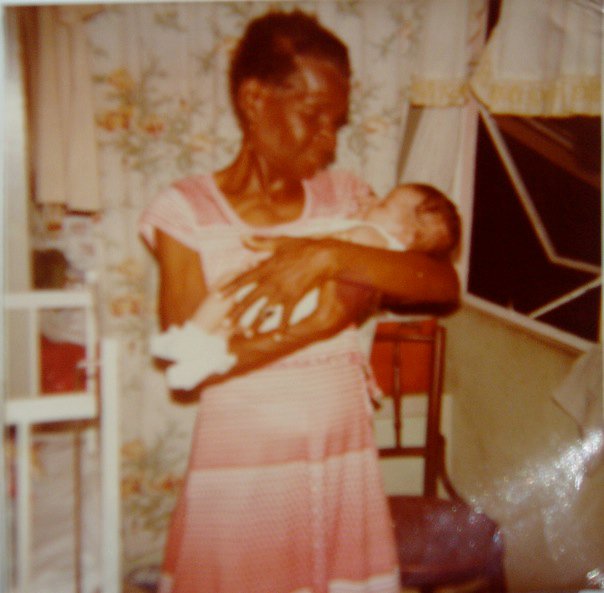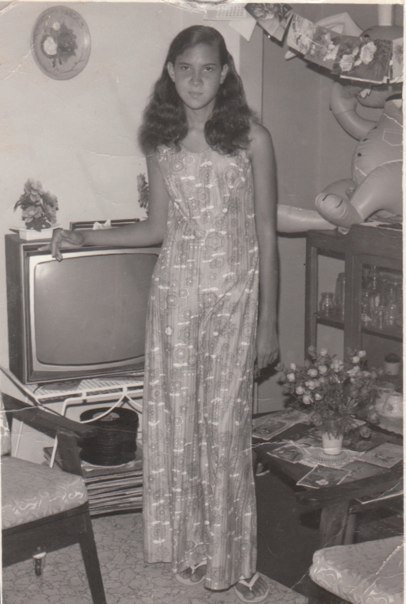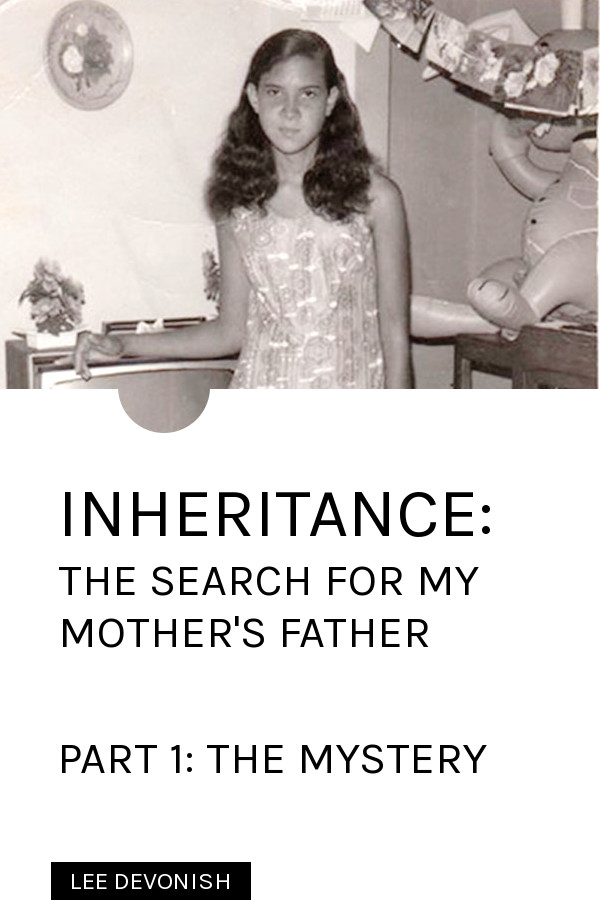Inheritance is a series that looks at my mother's story - growing up in Barbados without knowing the identity of her father besides one clue: his race.
Every story needs a bit of mystery.
My mother’s life story has always intrigued me because of its mystery.
In a way, her story is mine, and it’s my son’s as well, but no-one has felt the effect of it in the way she has. My mother’s story began with her own mother, Lillian, known to everyone in our family as Ma.

Ma had a secret that everyone knew about, but no-one ever mentioned – a secret she took to her grave. The only part of it we know is the one part that could not be denied: the secret involved a white man.
Our family
By the time I was born, my family had moved on up from a chattel house in Brittons Hill to a government housing scheme house in Christ Church – what one would refer to in Britain as a council house.
My two-up, two-down (another Anglicising term) childhood home had an indoor toilet and a pipe for a shower, and whilst it was all I had ever known, for my mother and her sisters, it was wonderful.
I never heard stories of suffering from poverty, but I did hear the familiar story of my middle aunt going to school and telling numerous lies about having carpets and a fridge, and more interestingly, peanut butter.
There were still plenty of people who had pit toilets in their yards and showered outdoors under a pipe (and I used both on visits to my friends’ houses) but they were fewer than a few decades before. The one thing that had stayed more or less unchanged, though, was the fact that in our neighbourhood, there were no white people. Before the black-and-white tv arrived (sometime after I did), there were no white people at all, and after the tv, they were there in the box, but appearing only in shades of grey.
Unexpected whiteness?
Lillian had two daughters before my mother came along. She was in her 40’s, so the baby must have been a surprise; still, no-one alive now knows how much of a surprise it was when the baby, another girl, turned out to be very pale, with fine, straight hair. Maybe Ma was the only one who wasn’t surprised.
The Barbados that my mother, Cheryl, was born into in 1957 was a very different place to the country I came into twenty-two years later. Still, in both of our experiences, we were never “mixed-race”; we were either called brown-skin or red. Much more rarely was the word “white” used, and in my experience, it was usually used in a negative way.
Being the odd one out of her family didn’t seem to bother my mother much, although she often recounted having “Eeeeur-pean!” shouted at her in the street.

Whatever she looked like, she wasn’t a European. She was as Bajan as her mother and sisters, the only difference being that her sisters knew who their respective fathers were. Of course, there were plenty of times when someone called her “ecky becky” and “redlegs”. In our family, in our neighbourhood, in our circle of friends, my mother was accepted because she was no different from everyone else.
Resisting difference
I always thought that my mother didn’t care very much about the other, unknown side of her family – in fact, I found it hard to think of the missing man as part of her family, or mine, at all. After all, he wasn’t actually real, just a hypothetical white grandfather I have to pin my skin colour on.
After all, if I never knew any more, I would never have to accept difference from the rest of my family – something I was never willing to do.
It turned out that the missing man meant a lot more to my mother than I realised – of course it did.
Maybe as a little girl she dreamt about someone who looked like her walking down the street and telling her his name, to finally know as much about herself as her sisters knew about themselves.
Forty-four years passed, but no mystery man ever appeared, and no answer ever came from Ma. She took his identity to her grave.
None of us know why.
Answers… and more questions.
We did try to piece together the few clues we had as the years went by, but they came to nothing. That was how I assumed that it would stay, until my mother told me that she was about to take a DNA test. What she found next made me question the way I had constructed my own identity as well as the assumptions I’d always made about my outlook on race, culture and belonging.

June 30, 2017 at 4:24 pm ·
Very well written and intetesting,cant wsut to see how it unfolds.
June 30, 2017 at 4:28 pm ·
You can never tell what’s around the corner 🙂